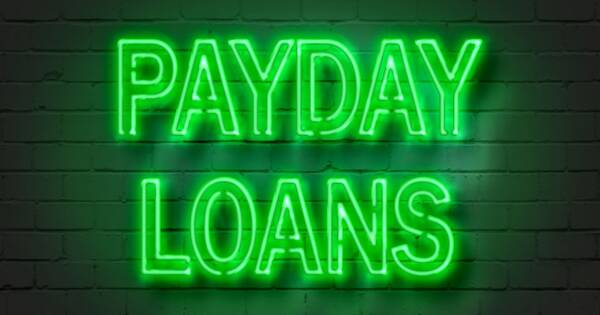Co-signing a loan can feel like a generous step toward helping someone overcome credit challenges, yet the commitment often carries more risk than expected. Many intend to support a loved one while they work toward stronger financial habits, only to find that missed payments or shifting circumstances create significant stress. When responsibility for a shared obligation becomes overwhelming, understanding potential avenues for separating your name from the debt becomes essential, especially when the arrangement no longer benefits your own finances.
One Word of Warning
We’ll get this out of the way from the start. Removing your name from a loan or credit product is often difficult. The lender required a co-signer for a reason, which is typically that the primary borrower has poor credit and/or insufficient income to qualify by themselves. So you (and your good credit) stepped in to help. That means you’re just as much on the hook for the debt as the original borrower. That’s the whole point of being a co-signer.
Unless the primary borrower has dramatically improved their credit score or financial situation since you both signed on the dotted line, the lender isn’t going to be happy about taking your name off the debt. After all, right now they have two people to chase down if the payments stop rolling in. Cutting that down to one person is never in the lenders’ best interest.
That being said, it is possible to remove your name from a co-signed loan. There are various requests, tactics, or financial maneuvers you can use. Let’s go over them.
Simply Ask
It’s possible that all you have to do is ask. Some loans offer what is known as a “co-signer release” after the primary borrower has made a few years’ worth of on-time payments. Generally, the banks are looking for at least 24 months of good payment history. If you co-signed a loan for a young relative who was just establishing their credit, this might be a reasonable option for you. Check the loan paperwork to determine if it offers this sort of release. If not, call your lender. Ask them directly if you can request to be removed from it.
You can also ask the primary borrower to contact the lender too. Depending on the type of loan and the company that’s servicing it, there may be some options they can recommend. This is, of course, assuming the primary borrower is being cooperative with the whole ordeal. If they don’t want your name off the debt, for whatever reason, you’ll probably have a harder time.
Get Another Loan to Replace It
While lenders may not want to reduce their liability by removing a name from the debt, you can potentially replace the old debt with a new one on equal value. This can be done by refinancing (in the case of a mortgage, for example). It can also be done with a whole new loan. This option will only work under a few conditions. First of all, the primary borrower needs to be open to the idea. In addition, their credit needs to have improved enough to qualify for the new loan by themselves.
If those conditions can be met, you’re in luck. Let’s say that you co-signed a $15,000 loan for your younger sibling to buy a used car. After a couple of years of on-time payments, your sibling’s credit has improved. Not only that, but there’s only $9,000 left to pay off. If your sibling can now qualify for a new $9,000 loan on their own, you can pay off the one you co-signed together. After all, helping someone else get their financial footing was the whole point of co-signing in the first place, right?
Use a Balance Transfer
This one works great for co-signed credit cards. Simply put, a balance transfer is taking what you owe on one credit card and moving it to a new one (often with great introductory terms, like 0% interest for 12 months). If you co-signed on a credit card and no longer want to be associated with it, maybe the primary cardholder can perform a balance transfer. Much like our last tip, this will require them to have improved their credit or income situation enough to qualify for one by themselves.
If they do qualify, though, they can pay off the co-signed credit card completely and close it entirely. Closing the card may cause a temporary hit to their credit score (as it removes a piece of their credit history). However, it will bounce back quickly. Ultimately, this is about getting your name disassociated from their old card. The good news that almost anyone can qualify for a credit card. So if you’ve co-signed on a credit card that you’d like to not worry about any longer, just ask about a balance transfer — even if the primary borrower didn’t qualify on their own the last time. Things may have changed enough for them.
It Helps If the Borrower is Willing to Fix the Situation
The first step is always to ask the primary borrower to consolidate the debt or credit themselves. Hopefully, their new reputation of making regular payments will open up more options for them to carry the credit on their own. However, they may only qualify for a new loan under worse terms, without your signature. For example, they may end up with a lower credit limit on their card or a higher interest rate. Or both.
So most of the easiest options only work if the primary borrower is willing to work with you. This is why you should only co-sign for a trusted family member or very close friend. Hopefully, they understand the favor your did for them and have intentions of eventually getting out on their own, financially speaking. However, if they are reluctant (or refuse) to cooperate, things get a bit trickier.
Sell The Asset
This doesn’t work for credit card or personal loans. But for debts associated with physical assets (think vehicles, houses, or property), you can always try to get the asset sold entirely. No asset, no debt obligation. However, taking this action could have serious negative consequences on your relationship with the primary borrower. In fact, you may have to force their hand. Co-signing on a car note, for example, is not the same as being the registered owner. You are liable for the debt, but might not have any legal grounds to sell the car without the primary buyer’s consent.
If your name is on the title of the car or house, though, you may be able to force the sale. You can use that money to pay off the loan or mortgage. At that point, your name is off the debt. The primary borrower can go ahead and attempt to qualify for a new car loan or mortgage, if they wish.
This option doesn’t work for everyone. For example, let’s say you co-signed on a car loan for a friend. Since then, they’ve driven the vehicle particularly hard, and put on many miles in a short amount of time. The market value of the vehicle no longer covers the outstanding loan amount. The loan is currently underwater, and selling the vehicle won’t entirely solve the problem.
Take Matters Into Your Own Hands
This definitely won’t be your first choice, but you can choose to simply pay off the debt yourself. It will be expensive and unpleasant, but paying off the credit card or car loan (or whatever) completely will allow it to be closed entirely. After that, the co-signed debt will no longer be your problem or appear on your credit report.
There are some cases where paying off the loan yourself may work out for you. For example, loan officers calculate your ability to pay a mortgage by checking your debt-to-income ratio. However, this calculations only cares about how much you need to pay per month. It doesn’t factor in how many more months you are required to make the payments (or whether a primary borrower is supposed to be making them instead). When I was still paying off my car loan, my debt-to-income ratio was significantly reduced by paying the entire loan off, six months early.
If a co-signed loan is really holding your other finances back in some way, you might need to bite the bullet and just pay it off yourself. It could make the difference between qualifying for that mortgage or not. Hopefully, you can work out a personal arrangement with the primary borrower for them to continue paying you back. Even if you can’t, paying off the debt will at least protect your own credit score.
Some Unfortunate Situations May Get Your Name Off the Loan
There are a few ways that the problem could resolve itself. Federal student loans, for example, are simply discharged if the student borrower passes away. On the other hand, private loans probably won’t let you off the hook quite as easily. If the primary borrower does pass away, hopefully there are enough assets in their estate to pay off the debt that you co-signed for.
If there aren’t, though, you will unfortunately still be on he hook for them. Remember that by co-signing the loan, you effectively also borrowed the money. As far as the lender (and the law) is concerned, if one borrower dies in debt, the other borrower still owes the balance. Keep this fact in mind the next time someone asks you to co-sign for them.
Bankruptcy
Its a last resort, but you could just file for bankruptcy. You should be able to use this is remove your name from a co-signed loan. The downside, though, is that this tactic could make the loan immediately come due for the primary borrower. They likely aren’t ready for that, which means bankruptcy is probably a lose-lose situation for everyone. Not to mention the strain is may put on your personal relationship.
Filing for bankruptcy will probably get your name off the loan, but at great cost to everyone involved. It’s probably best used as a hardball threat to get the primary borrower to agree to a less nuclear option. However, if the relationship has already broken down past the point of cooperation (in the case of an ex-partner, perhaps), it might be the only option you have left.
Some “Obvious” Things Won’t Actually Work
You might think that suing the primary borrower will help things. Unfortunately, it won’t. Even winning a small claims lawsuit against the primary borrower doesn’t actually take your name off the debt. Your best hope is that you can be awarded enough money to pay off the debt yourself and get it closed entirely.
Not only will a lawsuit probably not work the way you want, it could do serious damage to the relationship you have with the primary borrower. We’ll assume that you were probably fairly close to them at one point, since you agreed to co-sign for them. Now money is straining the relationship. A lawsuit could end it forever. And even if you “win,” the court can’t actually order your name off the debt.
Remember: A Divorce Won’t Work
Much like a lawsuit, a divorce won’t work either. The banks don’t care whether the co-signers are happily married or two complete strangers. If you and your ex-spouse co-signed for a car, mortgage, or other piece of credit, it remains a joint debt even after a divorce. There’s nothing either of you can do to remove the other’s name from these items. Even if the court rules that one party gets to keep the asset itself, the debt obligation doesn’t magically disappear for the other party.
Divorces are a complicated matter, especially when it comes the finances. Even if you agree (or are ordered) to let your former partner keep a certain asset, you may have to separately sort out the ownership of the debt attached. In many cases, newly divorced individuals will attempt to consolidate joint debts by taking out new individual loans. For example, one partner will attempt to refinance the mortgage on their own, while the other will apply for a new auto loan to “buy out” the shared vehicle.
The real problem, here, is that you are probably a less attractive borrower by yourself than you were as a couple. Especially in the middle of a divorce, which don’t tend to be cheap.
Don’t Give Up
It may be a long journey, but you shouldn’t give up. You can even combine two (or more) of these strategies, if needed. At the end of the day, co-signing for any loan has the potential to be a problem. You may have had the best intentions when you agreed, but it’s still an obligation that you volunteered to take on. Even if you can’t completely eliminate the loan or debt and get your name off it, you might still be able to pay it down a bit so that it’s not affecting your finances as much.
If you’ve exhausted all the options and you just can’t eliminate the debt, you may feel stuck. One thing you shouldn’t do is give up and ignore it entirely. That will just create even bigger financial problems down the road. Try to keep making the minimum payments. Or at least contact the lender and work out a payment plan. If you can, move some of the outstanding balance to a different loan (with cheaper terms). If you can reduce the debt a little bit more, there’s a better chance the primary borrower will be in a position to take of it themselves. You will inevitably have to work together with them in some form or fashion to get your name removed completely.
The Bottom Line
Removing your name from a co-signed loan is not an easy prospect, but it can be done. Just be sure that you are making the best financial decision for yourself when you determine what steps to take to have your name removed.
If you’re reading this article, it’s probably because you already agreed to co-sign for someone else and it’s gone wrong. If you’ve never actually been in this position, however, consider this article a warning. You may think that co-signing a debt is merely helping out a friend or family member. Legally, though, it’s you agreeing to be wholly responsible for the debt too. You should think long and hard about your own financial situation before you agree to co-sign for someone else — even your own children.





